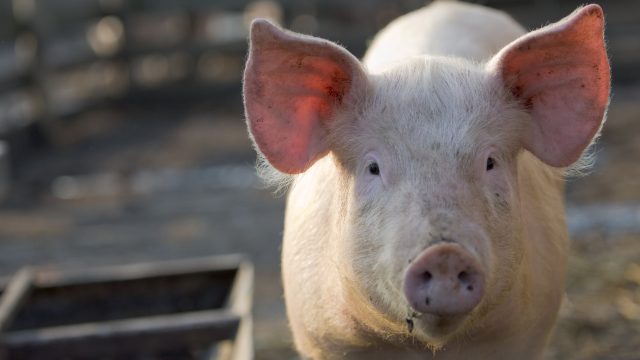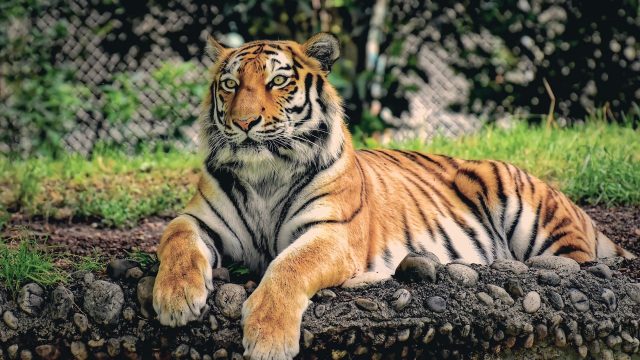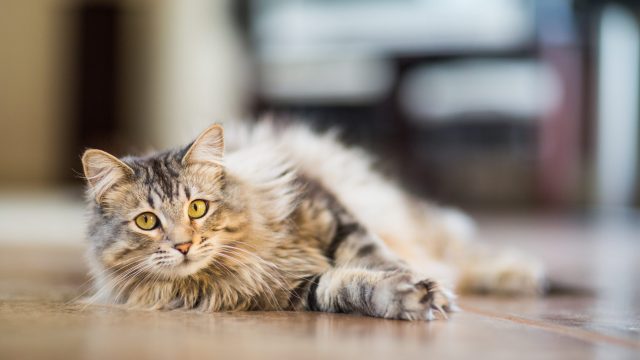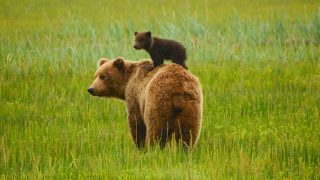
Where Are They Now? Spotlight on Elizabeth Holtz
In this continuing series of updates on former Student Animal Legal Defense Fund members, the Animal Legal Defense Fund is proud to spotlight graduates protecting animals through the legal system.
“Through SALDF, I was able to envision a career in animal law. Previous SALDF members had gone on to work at national animal protection organizations, and I was encouraged by their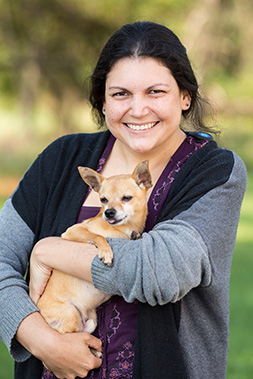 success. SALDF also opened my eyes to areas of animal protection beyond companion animals.” – Elizabeth Holtz
success. SALDF also opened my eyes to areas of animal protection beyond companion animals.” – Elizabeth Holtz
1) Where did you go to law school and when did you graduate?
Georgetown University Law Center, 2011
2) Current position and organization:
Director of Legislative Affairs, For All Animals
3) How long have you been in your current position?
1 year
3) What do you do in your current position?
My day to day activities vary greatly, but I work in state legislation, developing educational materials for advocates, and conducting legal research with a focus on wildlife. Over the past few months, I testified on behalf of numerous animal protection bills in the Maryland legislature, including one to ban cownose ray killing contests. I also coordinate our coalition work with other organizations to support local and state laws.
One part of my job is running For All Animals’ Attorney at Paw program. I guide grassroots organizations and advocates in passing local ordinances that protect companion animals, specifically in the issue areas of declawing, pit bull terriers, Trap-Neuter-Return (TNR), retail pet sale bans, and tethering. I’m proud of helping a community in Missouri pass a really positive TNR ordinance that protects community cats and community caregivers.
4) Have you had any other work experiences in animal law (or animal protection generally) since graduating law school?
I worked at Alley Cat Allies, an organization that focuses on cats, for four years. I started there as the Legal Fellow and eventually became the Associate Director of Law and Policy.
5) When did you take an interest in helping animals?
I’ve always loved animals and it was natural to want to help them. My father was from a small farming village in Ecuador where animals are generally viewed as resources for working or eating, not as companions. But for whatever reason, my father loved animals, especially dogs. His best friend was a dog named Compinche (which actually means “best friend” in Quechua). So I think my love of animals might be genetic.
As a child, I was always helping animals in distress in my neighborhood, though my mom actually ended up doing a lot of the work. I was too young to volunteer without her help or drive anywhere, so she volunteered with me as a dog walker at the local shelter. Another time, she drove me four hours round-trip to a bird rehabilitation center on the Eastern Shore of Maryland because I found a baby bird on the ground.
6) What did you study in undergrad, and what school did you attend?
I majored in English at Pomona College.
7) What got you interested in pursuing a law degree?
I’ve always loved animals, so much so that I worked as a veterinary assistant all four years of high school. While I enjoyed working there I realized that my strengths may lay elsewhere. I’m also less naturally inclined towards science. My strengths have always been writing and research. After college, I joined the Jesuit Volunteer Corps. I was assigned to a job assisting Spanish-speakers obtain public benefits like food stamps. After witnessing the soul-crushingly slow bureaucracy and nonsensical and harmful laws that make up the public benefits system, I knew I wanted to go to law school and change policy rather than work in direct service.
8) When you were involved with SALDF, what position(s) did you hold and what sort of activities and events did you help with and/or spearhead?
I became involved with SALDF my 1L year, and I went on to become the vice president. Our chapter was very small (at least at the time). Our activities primarily focused on raising awareness of animal protection issues among other law students. We held vegan bake sales and brought speakers to campus. One of the best attended talks was given by Berwyn Heights Mayor, Cheye Calvo. His dog was killed during a police raid he alleged was unlawful. We also sponsored a presentation by one of the attorneys who worked on the animal crush case that went to the Supreme Court, U.S. v. Stevens.
9) How did being involved with SALDF play a role in your education and career?
Through SALDF, I was able to envision a career in animal law. Previous SALDF members had gone on to work at national animal protection organizations, and I was encouraged by their success.
SALDF also opened my eyes to areas of animal protection beyond companion animals. I became vegetarian at age 13 but, frankly, did not give farmed animals much thought after that. Through SALDF, my animal protection philosophy expanded to be more holistic and incorporate other lifestyle changes like diet, choosing cruelty-free cosmetics, and generally being more conscious of how my decisions impact animals.
10) Any other noteworthy law school experiences, internships, etc.?
At Georgetown, instead of doing a traditional clinic, I participated in the first year of the Community Justice Project, where I represented clients in unemployment insurance appeals and worked with law students in Egypt, and traveled there on a project to increase access to divorce court for Egyptian women.
I also volunteered with the Nonhuman Rights Project both during law school and after I graduated. I appear in seven seconds of the HBO documentary, Unlocking the Cage. As a celebrity news aficionado, seeing myself on HBO was one of the most thrilling moments of my life.
11) What do you hope to accomplish in your work for animals (and/or is there an accomplishment thus far you are particularly proud of)?
I hope to empower and encourage people who aren’t in the “movement” to advocate for animals. Many people are scared to participate in the political process or worried they aren’t smart enough. But they are! It’s a very low bar to be able to advocate for animals. You just need a brain and maybe a mouth. Very few people participate in politics at the local level so one person can make a huge difference, especially if they don’t live in a huge city.
I’m very proud of passing dozens of positive ordinances protecting community cats in Trap-Neuter-Return programs, as well as their caregivers. If I had become a veterinarian or worked in a shelter, I could never have saved the thousands of cats that I believe these laws eventually will.
12) What advice would you give law students who are considering a career in animal law?
Be persistent. Trying to get work in animal law can be difficult and disheartening. There aren’t very many positions (though that’s changing) and it takes some hustle and legwork to get a job in this field.
13) Anything else you’d like to include?
I recently hired two paralegal Chihuahuas, Alvin and the Colonel, to assist me with my work. Unfortunately, their work ethic leaves something to be desired. But they’re very cute so I’m going to keep them.
How We Work
Recent News
-
Court Rules Texas Food Label Censorship Law is Unconstitutional
The law imposed unclear and vague standards on plant-based meat producers that violate the First AmendmentJanuary 29, 2026 Press Release -
Defend the Big Cat Public Safety Act
Urge your federal representative to oppose H.R. 7159, which aims to undo protections established by the Big Cat Public Safety Act, including by creating exemptions allowing direct contact with big cats, such as cruel cub petting. -
State Animal Protection Laws Ranked: Oregon is #1, North Dakota #50
20th edition of ALDF state and territory ranking report highlights major advancements & trends in animal protection across the U.S.January 27, 2026 News

